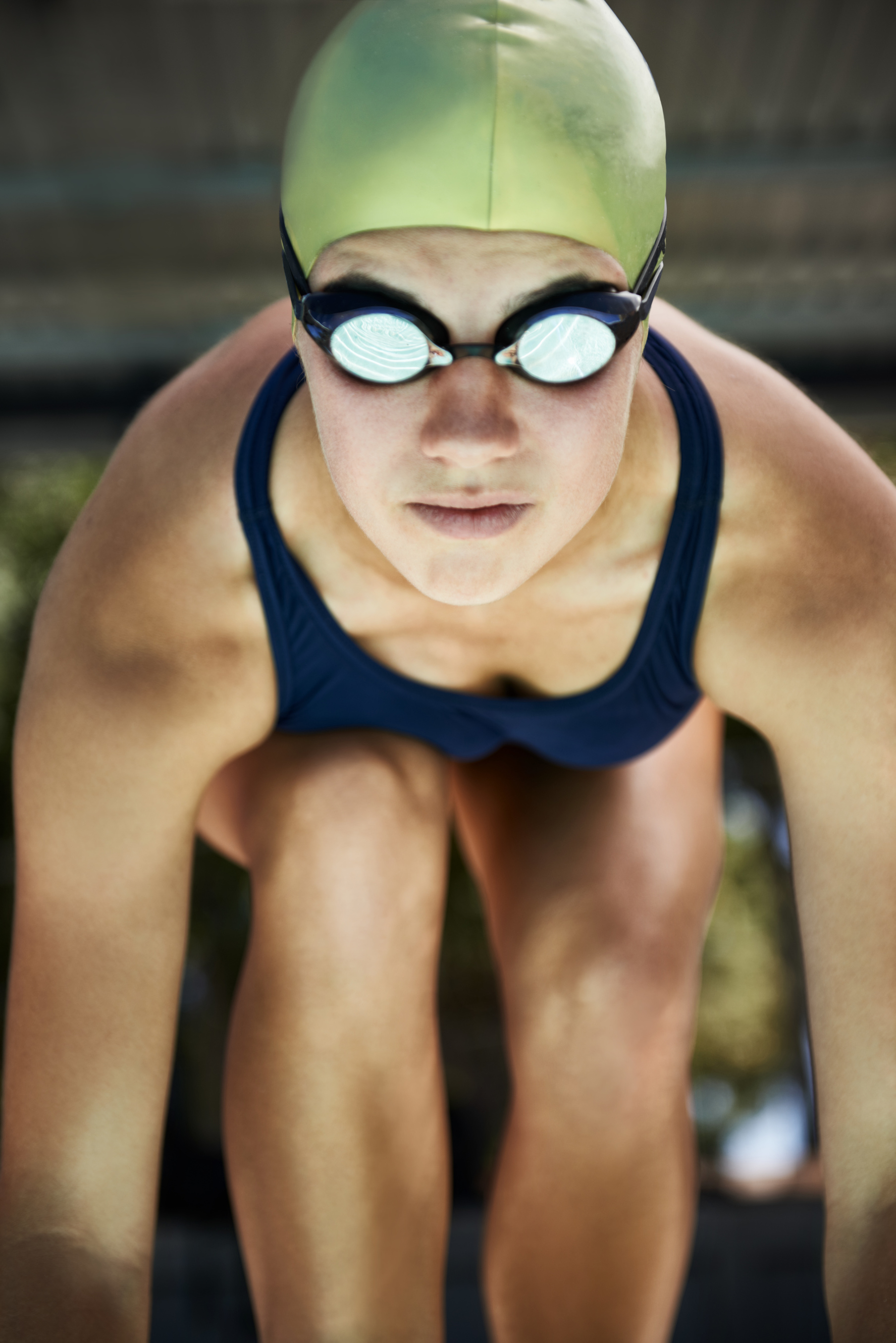True or false?
- Swimming makes you hungry. (True.)
- Don’t play in the water for at least an hour after eating. (False.)
- Swimming is the best warm weather sport for weight loss. (Really True.)
Swimsuit weather is around the corner and for many women that means crash dieting before heading to the mall to find the perfect fit. Don’t do it – drastic dieting is not healthy and there is a better solution to revving up weight loss.
 First, find last year’s bathing suit. Second, put it on and don’t look in the mirror. Third, head to your favorite swimming hole and jump in!
First, find last year’s bathing suit. Second, put it on and don’t look in the mirror. Third, head to your favorite swimming hole and jump in!
Swimming is one of the best sports for losing extra pounds; it works all muscle groups without joint stress and you may discover a renewed sense of energy and peace of mind. For every 30 minutes of light intensity swimming, according to the American Council on Exercise, an individual can burn anywhere from 250 to more than 400 calories. Increase the intensity of the swim – a race with your children, for example – and you may be up to as many as 600 calories. The colder the water, the more calories burned as the body works to keep itself warm during the swim. The colder the water however, the hungrier you may feel after completing your laps. Keep a handful of walnuts in your tote bag or have a protein shake to assuage that hunger and your swim will prove a beneficial, healthy, weight loss experience.
An additional benefit of swimming is that it is an every day vigorous sport that does not jeopardize the risk of a joint injury. Athletes recovering from knee and ankle injuries often keep in shape with water-based exercise.
Three-time Olympian and four-time individual Olympic gold medalist Janet Evans, recognized as the greatest female distance swimmer of all time, explains in her book Janet Evans’ Total Swimming that the benefits of swimming are numerous, significant, and undeniable. “Swimming can be beneficial to people across a broad range of ages and abilities: the very young to the very old, the very slow to the very fast, those with injuries or degenerative conditions, pregnant women, beginner to serious athletes, and fitness buffs,” she writes. “Swimming positively affects many aspects of life, including physical, mental, and emotional well-being. It’s no wonder that physicians, physical therapists, exercise physiologists, and fitness coaches alike laud swimming as one of the best ways to stay in shape.
According to Evans, swimming is the ultimate all-in-one fitness package; working muscles in the body in a variety of ways with every stroke. When strokes are performed correctly, the muscles lengthen and increase in flexibility. Continued repetition of strokes improves muscle endurance, and because water creates more resistance against the body than air in land exercise, the muscles are strengthened and toned. Swimming also builds core strength, which is important to overall health and stability.

Additionally, an appropriately structured water workout provides significant improvements to the cardiovascular system. As breathing during swimming is slightly limited in volume and frequency, the exercise promotes greater lung capacity and a consistent intake of oxygen. Aerobic and anaerobic gains are attained in one workout.
Motivated? Get a copy of Janet Evans’ Total Swimming, available in paperback and in e-reader format from inspirehealthmag.com/shops, for a thorough overview on the sport, including suggested workouts. Contact your local YMCA or fitness centers for information about pools and swimming classes.
By Tricia Danflous



